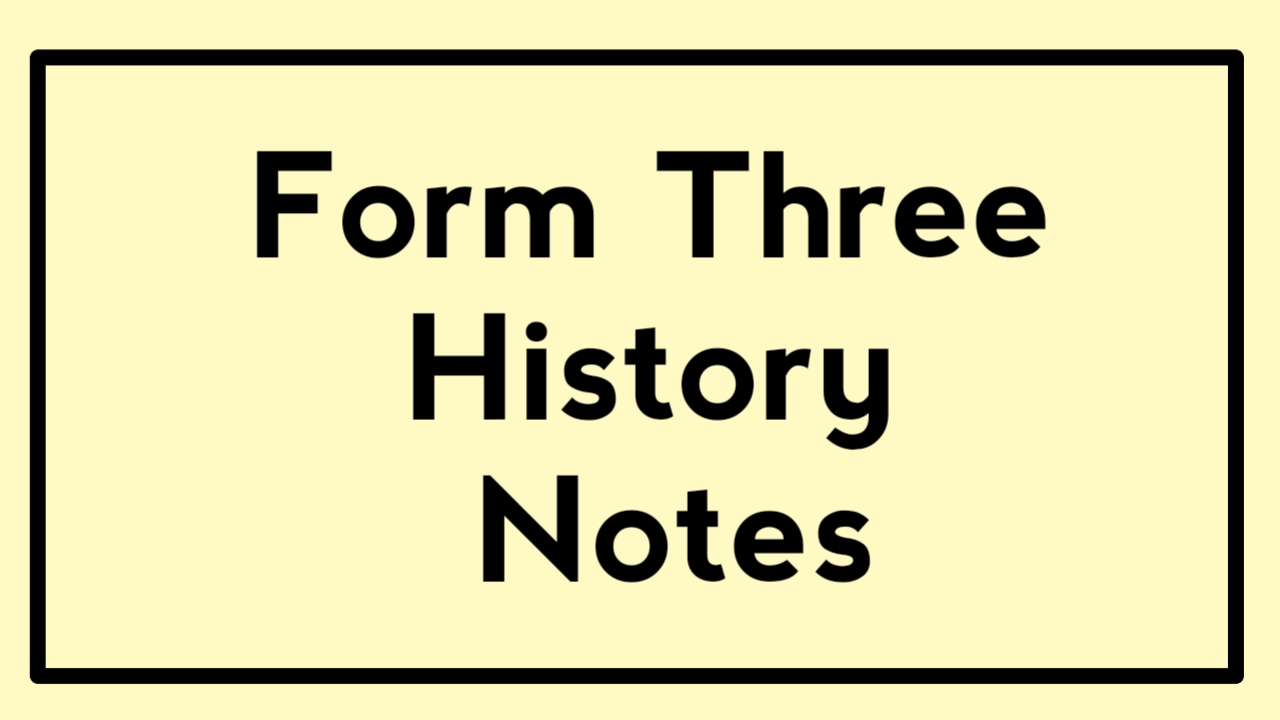As students delve into Form Three History, they explore significant historical events and themes that have shaped the world. This stage of study often involves a deeper analysis of political, social, and economic developments. Here’s an overview of the main topics typically covered in Form Three History to guide your studies and understanding.
DOWNLOAD FULL NOTES FOR FORM THREE HISTORY
1. Historical Methodology
1.1. Understanding History
- Definition and Scope: History is the study of past events, particularly in human affairs. It helps us understand how past events shape current societies.
- Sources of History: Distinguish between primary sources (e.g., diaries, official documents) and secondary sources (e.g., textbooks, articles).
1.2. Historical Inquiry
- Analyzing Sources: Evaluate the reliability and perspective of historical sources.
- Chronology: Understand timelines and how to place events in chronological order.
2. Early Civilizations
2.1. Ancient Egypt
- Society and Culture: Explore the structure of ancient Egyptian society, including pharaohs, religion, and daily life.
- Achievements: Study key achievements such as the construction of pyramids and advances in writing and mathematics.
2.2. Mesopotamia
- City-States: Learn about the Sumerian, Akkadian, Babylonian, and Assyrian civilizations.
- Contributions: Examine contributions to writing (cuneiform), law (Code of Hammurabi), and urbanization.
3. Medieval History
3.1. Feudalism
- Structure: Understand the feudal system of medieval Europe, including the roles of lords, vassals, and serfs.
- Impact: Analyze the social and economic impacts of feudalism on medieval society.
3.2. The Byzantine Empire
- Overview: Study the continuation of the Roman Empire in the East, focusing on its administration, culture, and decline.
- Key Figures: Learn about significant figures like Emperor Justinian and his contributions.
4. The Renaissance and Reformation
4.1. The Renaissance
- Cultural Revival: Explore the cultural rebirth of Europe during the Renaissance, including advancements in art, science, and literature.
- Major Figures: Study influential figures like Leonardo da Vinci, Michelangelo, and Galileo Galilei.
4.2. The Reformation
- Protestant Reformation: Understand the causes and consequences of the Reformation, including the works of Martin Luther and John Calvin.
- Catholic Reformation: Examine the Catholic Church’s response to Protestantism and the changes it implemented.
5. Exploration and Colonization
5.1. Age of Exploration
- Key Explorers: Learn about the voyages of explorers such as Christopher Columbus, Vasco da Gama, and Ferdinand Magellan.
- Impact: Assess the effects of exploration on global trade, cultural exchanges, and colonization.
5.2. Colonial Empires
- European Colonies: Study the establishment and administration of European colonies in the Americas, Africa, and Asia.
- Consequences: Examine the social, economic, and political impacts of colonization on both the colonizers and the colonized.
6. Revolutionary Movements
6.1. The American Revolution
- Causes: Understand the causes of the American Revolution, including taxation and political representation issues.
- Outcomes: Explore the outcomes, including the Declaration of Independence and the establishment of the United States.
6.2. The French Revolution
- Events: Study key events such as the Storming of the Bastille and the Reign of Terror.
- Impact: Analyze the impact of the Revolution on France and its influence on global revolutionary movements.
Study Tips
- Create Timelines: Visualize historical events with timelines to understand their sequence and context.
- Use Diverse Sources: Incorporate different types of sources to get a comprehensive view of historical events.
- Engage in Discussions: Discuss historical events with classmates or in study groups to deepen your understanding.
- Practice Essays: Write essays on historical topics to improve your ability to articulate and analyze historical arguments.
Mastering these concepts in Form Three History will provide a solid foundation for understanding complex historical developments and their implications on the modern world.
